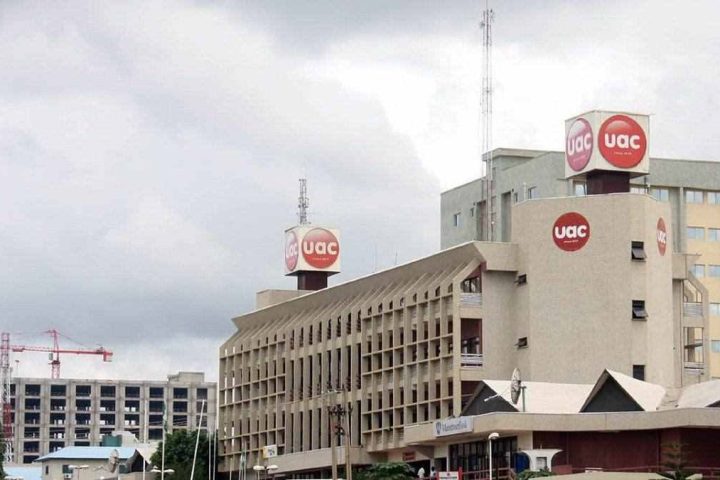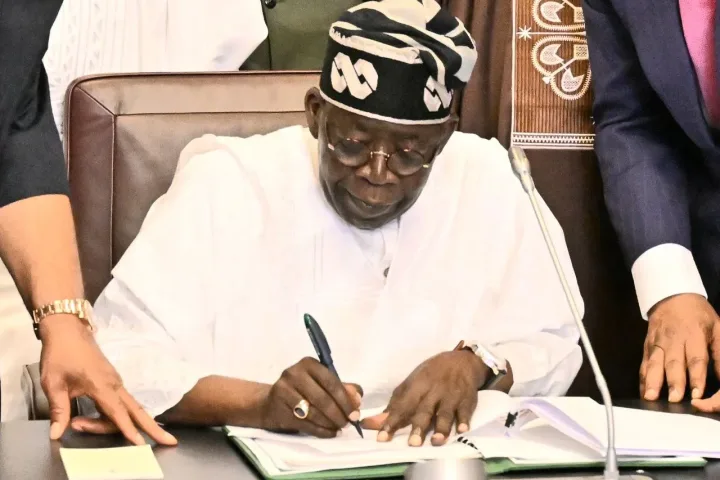Nigerian banks are at risk of facing profits and capital adequacy declines as the Federal Government plans to tax 50 per cent of profits realised from foreign exchange (FX) revaluation in 2023.
President Bola Tinubu has asked legislators for an upward review of the 2024 Appropriation Act by N6.2 trillion, thus taking the total proposed expenditure to N34.9 trillion, up from the previous budget estimation of N28.7 trillion.
Join our WhatsApp ChannelHe also plans to tax banks’ windfall from foreign exchange gains.
FX Gain Tax: A New Burden on Nigerian Banks
In 2023, eight Nigerian banks made N754.8 billion in foreign exchange revaluation gains, largely due to the liberalization of the FX regime.
This was a 472.3 per cent increase from N131.9 billion FX gains reported in 2022.
The banks are Zenith Bank Plc, United Bank for Africa (UBA) Plc, Access Holdings Plc, FCMB Group Plc, Stanbic IBTC Holdings Plc, Fidelity Plc, Guaranty Trust Holding Company (GTCO) Plc, and Sterling Financial Holdings Company Plc.
Analysts at FBNQuest said the implication of the FX Gain Tax on banks is that the financial institutions will face a significant tax burden.
“This measure may have an impact on their profitability and capital adequacy, especially if they had anticipated using these gains as a counter-cyclical buffer against foreign exchange fluctuations, as directed by the Central Bank of Nigeria,” they said in a note released on Thursday.
Omobola Adu, an analyst at BancTrust, remarked that this tax is an unplanned expense for the banks. “For banks that have realized the profit, that’s the amount they’ll get the windfall from,” Adu explained.
Another Lagos-based analyst said that the 50 percent tax is high and may affect how banks choose to declare their profits.
READ ALSO: CBN Intervenes In FX Market With $122.67m Sales To 46 Authorised Dealers To Promote Stability
Government Revenue and Broader Economic Implications
On the government side, analysts at FBNQuest noted that profits from FX revaluation gains are expected to increase revenue for the government.
However, despite this one-time windfall tax, the revenue generated is unlikely to cover the additional N6.2 trillion needed to fund the government’s expanded spending plans.
They urged the Nigerian government to look to other means of financing the plans.
“As a result, the government will need to consider alternative financing options,” they further said.
Given the underperformance in revenue of the Federal Government, largely due to declining crude oil production, the government will most likely turn to borrowing to meet its funding needs.
Nigeria’s debt profile has been increasing as a result of rising expenditures and poor revenue performance.
In 2024, the sums of N28.78 trillion and N19.67 trillion were approved as expenditure and revenue respectively, creating a budget deficit of N9.1 trillion.
Additional borrowing will exacerbate the trend and could potentially affect the country’s credit ratings and investor confidence, financial analysts say.
“Domestic borrowing will be the preferred option due to the stringent conditions in the international capital market,” the FBNQuest analysts added.
Reactions from the Banking Sector
The NGX banking index reflected the sector’s concerns, showing a negative 2.3 percent on Thursday.
The banking sector is apprehensive about how this new tax will affect their financial health and operational strategies moving forward.
An executive from one of the affected banks, preferring to remain anonymous, said, “This tax introduces a level of uncertainty that could impact our investment and lending decisions.”
The proposed FX Gain Tax is a significant development that poses challenges for Nigerian banks, potentially affecting their profitability and capital adequacy.
The government’s need to fund expanded spending plans without sufficient revenue growth will likely lead to increased borrowing, further straining the country’s financial stability.
As the situation unfolds, banks and the government alike will need to navigate these new financial pressures with caution and strategic planning.
Emmanuel Ochayi is a journalist. He is a graduate of the University of Lagos, School of first choice and the nations pride. Emmanuel is keen on exploring writing angles in different areas, including Business, climate change, politics, Education, and others.
- Emmanuel Ochayihttps://www.primebusiness.africa/author/ochayi/
- Emmanuel Ochayihttps://www.primebusiness.africa/author/ochayi/
- Emmanuel Ochayihttps://www.primebusiness.africa/author/ochayi/
- Emmanuel Ochayihttps://www.primebusiness.africa/author/ochayi/



















Follow Us